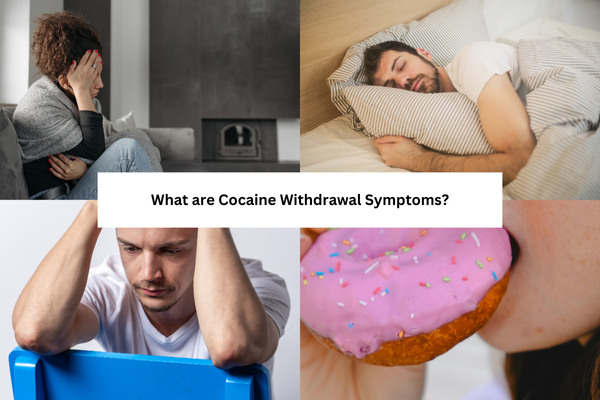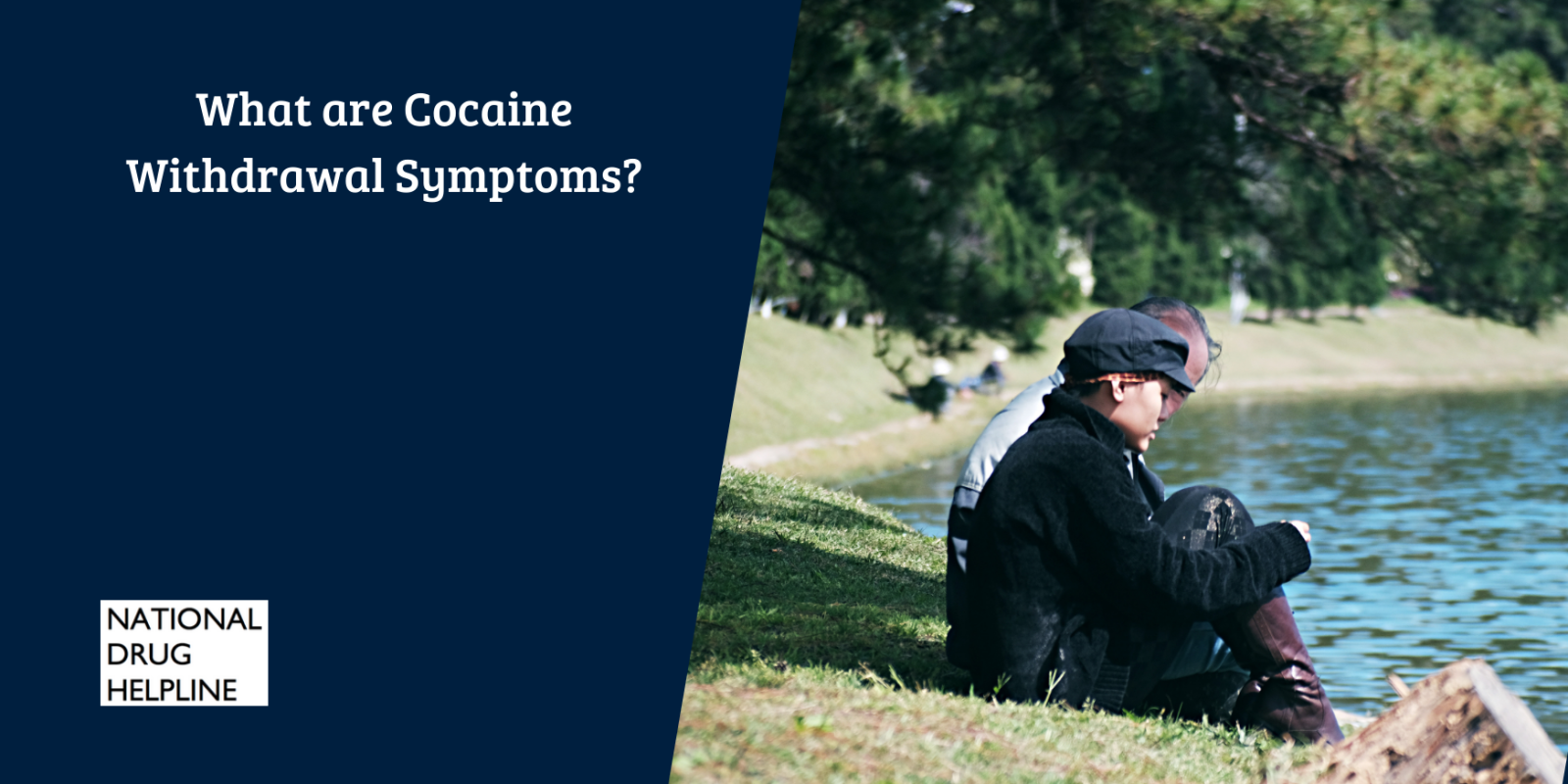Cocaine is a strong stimulant that can lead to withdrawal when someone who has been taking it for a period of heavy or regular use stops using it. During withdrawal, the brain and body go through a difficult adjustment period. Symptoms of cocaine withdrawal can be challenging both physically and emotionally. But knowing and anticipating the symptoms of withdrawal can make it much easier to handle this difficult period.
Why Does Cocaine Withdrawal Happen?
Cocaine induces a sense of pleasure, motivation, and reward by increasing levels of dopamine in the brain. Repeatedly using cocaine can disrupt the natural chemical balance of the brain. Once you stop using cocaine, the brain requires time to adjust and restore equilibrium. This can lead to cocaine withdrawal and its symptoms, which can range from depression and fatigue to intense cravings.
Common Cocaine Withdrawal Symptoms
The symptoms of cocaine withdrawal can vary in duration and severity based on how heavily and how long the drugs were used[1]. Although the withdrawal symptoms of cocaine are less pronounced than those of other substances like opioids or cocaine, the psychological impact can be profound. Here are some of the common symptoms of cocaine withdrawal:
1. Fatigue
The earliest sign of withdrawal from cocaine is excessive fatigue and tiredness. This is a normal response of the body to the overstimulation that occurs secondary to the use of cocaine.
2. Depression and Mood Swings
After stopping cocaine use, most people experience what is called a “crash”. It leads to feelings of sadness, hopelessness, or irritability[2]. These symptoms may persist for several days or weeks and can be similar to symptoms of addiction.
3. Cravings
It is very common to have intense urges to use cocaine again during withdrawal. These urges can be triggered by stress, environmental cues, or emotional distress.
4. Anxiety
Along with depression, many people also become increasingly anxious, restless, or paranoid during withdrawal.

5. Sleep Disturbances
Another frequently reported symptom is disturbance in sleep patterns. Problems with sleep can include insomnia, disturbingly vivid dreams, or even hypersomnia (excessive sleepiness).
6. Increased Appetite
Cocaine suppresses appetite. When someone stops using, hunger often returns with a vengeance.
7. Difficulty Concentrating
After stopping cocaine use for several days or weeks, people may start experiencing brain fog and difficulty concentrating.
Timeline of Cocaine Withdrawal
Symptoms of cocaine withdrawal usually begin within hours after taking the last dose and may follow this general timeline:
- First 24–72 hours (Crash Phase): In this phase, symptoms include exhaustion, agitation, anxiety, depression, and cravings.
- Week 1–2: The second week after stopping cocaine is followed by mood swings, sleep issues, increased appetite, and continued cravings.
- Week 3–4 and beyond: Beyond the third week, symptoms generally start to improve, but psychological symptoms such as cravings and low mood can persist.
Each person may experience varying or unique symptoms of cocaine withdrawal. Some may have an easier recovery, while others may have a more difficult and time-consuming journey.
Dangers of Going Through Withdrawal Alone
Although stopping cocaine is in itself a life-preserving step, going through it may be emotionally intense. The risk of relapsing due to withdrawal is particularly high, especially due to overwhelming mood swings and cravings. For people with co-existing medical disorders, going through withdrawal may worsen symptoms of anxiety and depression[3].
Therefore, when you discontinue cocaine use, it is recommended that you seek professional help and medical supervision.
Treatment for Cocaine Addiction and Withdrawal
Several science-backed effective cocaine addiction treatments exist, but the approach should be individualized. The main goal of treatment is to ease symptoms of cocaine withdrawal while also preventing relapse and addressing underlying behavioral patterns.
1. Medical Detox
Although it is not always essential, medical detox programs offer comfort, supervision, and safety during withdrawal.
2. Behavioral Therapy
Cognitive Behavioral Therapy (CBT) helps people recognize triggers, build skills to cope through withdrawal, and prevent relapse from occurring.
3. Inpatient and Outpatient Programs
Inpatient programs provide a structured environment to go through withdrawal, which may be most beneficial for those who do not have strong social support. Outpatient programs may be ideal for people with personal or professional obligations.
4. Support Groups
Narcotics Anonymous (NA) offers a twelve-step program and also peer support that further strengthens the support required to go through withdrawal. These programs provide community, accountability, and encouragement.
When to Seek Help
If you are having a hard time going through withdrawal symptoms of cocaine, you should know that you do not need to face this alone. Professional support can make the entire process safer and more likely to succeed.
Some resources to help you during withdrawal are:
- National Drug Helpline: 1-844-289-0879 is the hotline that helps provide confidential and free referrals.
- HelpGuide.org is an easily accessible website that offers real-life advice on managing the symptoms of withdrawal.
These are just a place to start. You can also find other treatment options designed to help with recovery. There are also options if you’re trying to help someone with an addiction.
Long-Term Recovery and Support
Recovering from addiction requires lifelong discipline and persistence. It does not stop after the withdrawal ends. It involves rebuilding your life after the damage that cocaine addiction has done to your personal and professional life. If you have co-existing mental health issues, those also need to be addressed to ensure continued recovery and an overall successful outcome.
Staying connected with your family and friends through support networks, engaging in counseling, and practicing self-care.
Final Thoughts
Symptoms of cocaine withdrawal can be intense, but they are a sign from your body and mind that you are recovering. The best way to approach withdrawal is to know what to expect and where to go for help. If you have the right support and guidance, recovery can be an easy process with the result being a healthier, happier you.
Last updated: May 19, 2025
References
| ↑1 | Brower, Kirk J., and Alfonso Paredes. “Cocaine withdrawal.” Archives of General Psychiatry 44.3 (1987): 297-298. |
|---|---|
| ↑2 | Coffey, Scott F., et al. “Acute and protracted cocaine abstinence in an outpatient population: a prospective study of mood, sleep and withdrawal symptoms.” Drug and alcohol dependence 59.3 (2000): 277-286 |
| ↑3 | Morton WA. Cocaine and Psychiatric Symptoms. Prim Care Companion J Clin Psychiatry. 1999 Aug;1(4):109-113. doi: 10.4088/pcc.v01n0403. PMID: 15014683; PMCID: PMC181074. |

